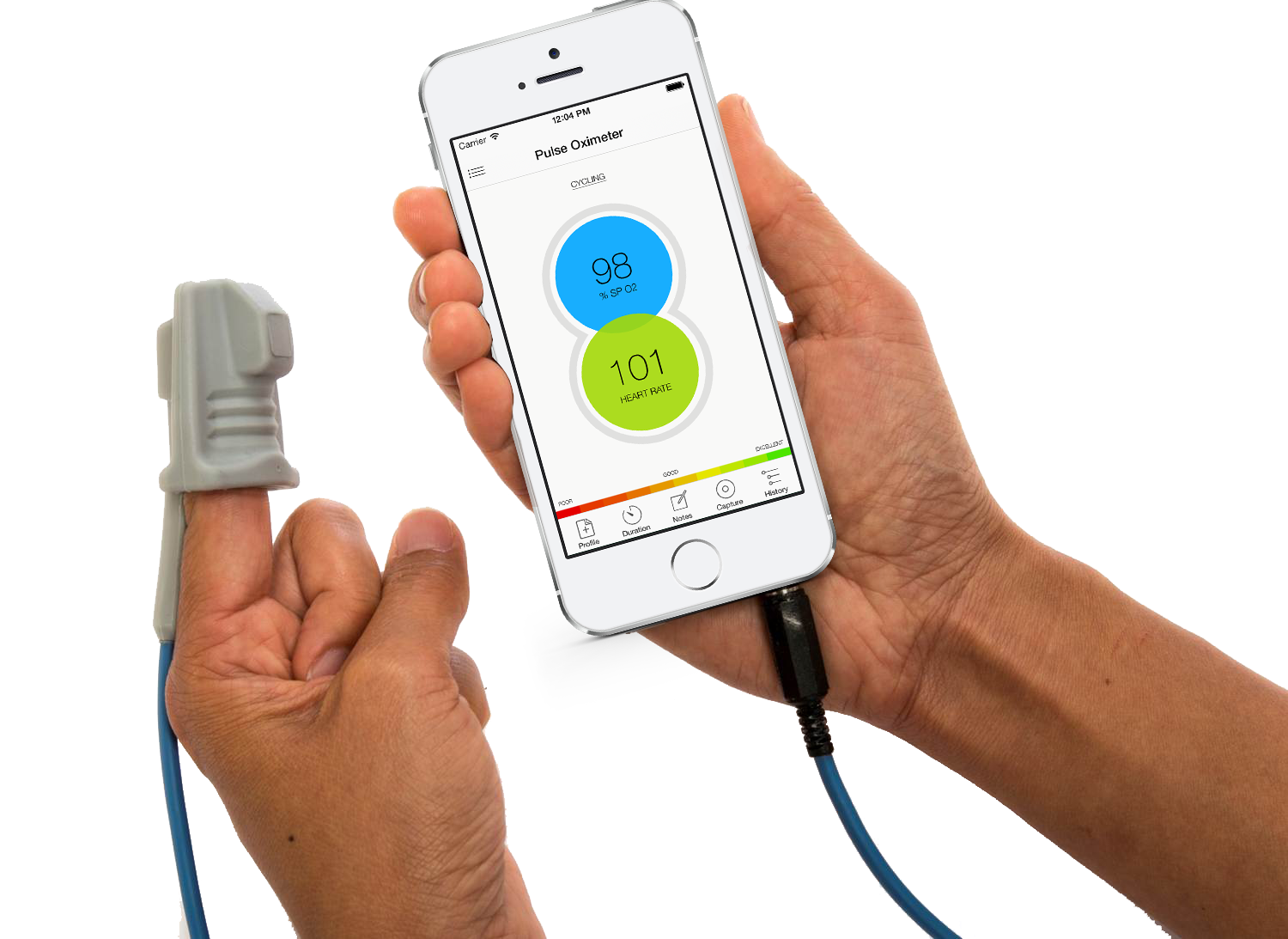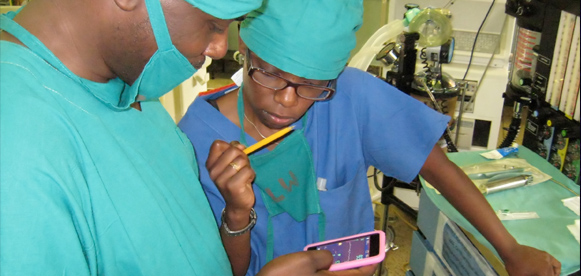Smartphone app reads blood oxygen levels, forewarns of life-threatening pre-eclampsia
March 14, 2014

The Phone Oximeter app and sensor (credit: LionsGate Technologies)
LionsGate Technologies (LGTmedical), a Vancouver-based social enterprise, has secured its first major financial backers to scale up development of the Phone Oximeter.
This is an app and medical sensor that turns a non-specialist, community-level health worker’s smartphone, tablet computer or laptop into an affordable and simple but sophisticated medical-grade diagnostic tool that is typically only available, in the developing world, in some hospitals.
The app works with plug-in hardware for hospital-standard measurements of blood oxygen and can forewarn of life-threatening pre-eclampsia with 80% accuracy, offering the developing world a tool to help prevent countless thousands of maternal and child deaths.
The Canadian federal government, through Toronto-based Grand Challenges Canada, together with private investors, are announcing $2 million funding for confirmation studies this year involving 80,000 women in Asia (India, Pakistan) and Africa (Namibia, Mozambique).
The federal government investment is the first under a new $10 million strategic partnership with Grand Challenges Canada to help fast-track several of the most promising global health innovations in its pipeline.

The Phone Oximeter in use at Mulago Hospital Kampala Uganda (credit: LionsGate Technologies)
Developed by scientists Mark Ansermino, Guy Dumont and Peter von Dadelszen of the University of British Columbia, the device measures blood oxygen levels through a light sensor attached to a person’s fingertip. This technique is known as pulse oximetry.
Avoiding deaths in developing countries
The Phone Oximeter can accurately predict roughly 80% of cases of pregnant women at risk of life-threatening complications due to high blood pressure. The condition, pre-eclampsia, is one of three leading causes of maternal mortality.
Each year, about 76,000 of an estimated 10 million pregnant women worldwide who develop pre-eclampsia die from it and related complications. The number of fetus and infant deaths due to these disorders is estimated at more than 500,000.
“That equates to over 1,600 deaths of pregnant young women and babies every day and more than 99% of these deaths occur in developing countries, an issue of social justice,” said von Dadelszen.
The Phone Oximeter can also reveal dangerously low oxygen levels in patients with pneumonia, which kills more than 1 million children annually.
The $40 target price will make it 80% less costly than any other device capable today of meeting high-level medical standards. It is expected to be available in Spring 2014 (more info).
Tests to fine-tune the device will involve monitoring blood-oxygen levels of athletes in training, allowing developers to fast-track its preliminary use. Longer term medical trials of the mobile application and its pre-eclampsia predictive capability will involve 80,000 women in four countries: India, Pakistan, Mozambique and Nigeria.
